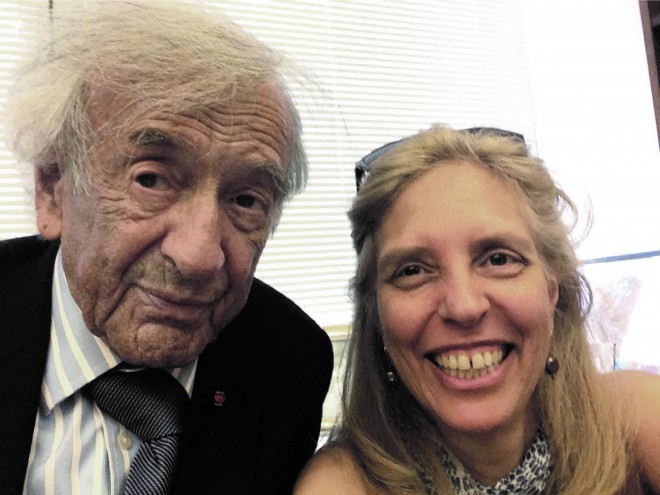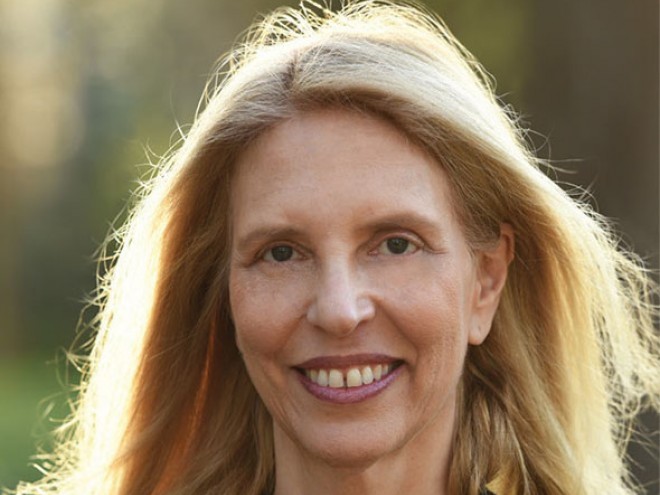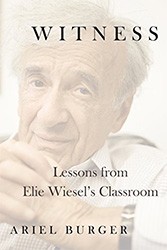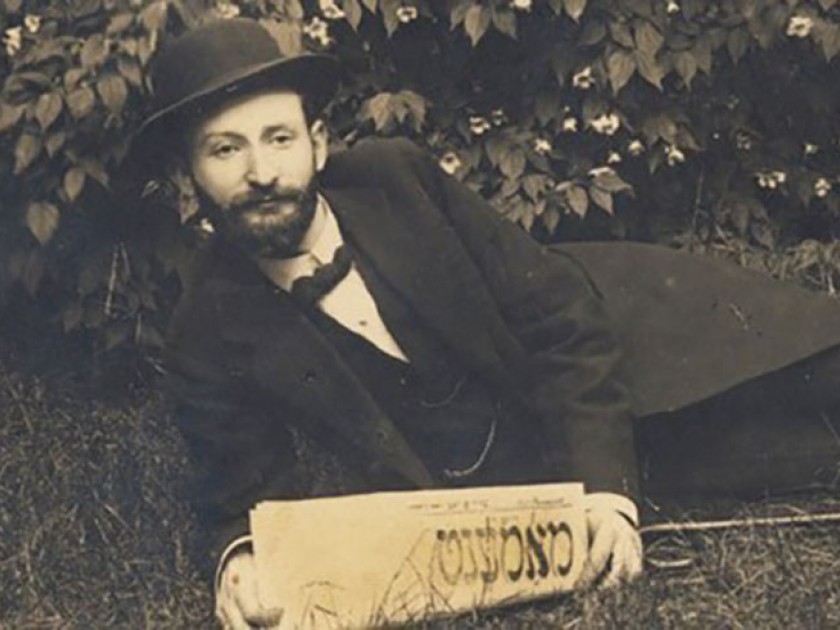
Courtesy of the author
Shortly after I took over Moment in 2004, I made a pilgrimage from Washington, DC to meet the magazine’s founders, Leonard Fein and Elie Wiesel. Elie was teaching at Boston University and I remember being ushered into his spacious, wood paneled, book-lined office. I was nervous to meet the famous Elie Wiesel, the man who had written Night. When he began to talk his accent was so thick and his voice so soft, I found that I had a hard time following him. That made me even more nervous.
Eventually I became accustomed enough to his voice that I was able to comprehend that he was talking about Moment’s East European origins — the independent Der Moment (The Moment in Yiddish). He remembered the paper sitting on his family’s kitchen table in his hometown of Sighet, Romania before the town was annexed to Hungary, occupied by Nazis, and its Jews deported to Auschwitz. I was struck by that while he had observed his father reading the newspaper every day, he himself had never touched it, since as a yeshiva student non-religious topics were forbidden to him. Yet after the Holocaust, his memory of Der Moment was one of the things that led him to choose a career as a journalist.
I also learned more about how early twentieth-century Warsaw was a hotbed of Yiddish journalism.
Years later, I went to Warsaw and tracked down the spot where the office had stood before the Jewish ghetto was razed. I also learned more about how early twentieth-century Warsaw was a hotbed of Yiddish journalism. Thirty-eight percent of the city’s inhabitants were Jews, most of whom read only Yiddish and a smattering of Hebrew; at one time there were eleven Yiddish dailies published that were their primary sources for news and entertainment. Among them, Der Moment was the most popular, particularly for its Rabbinical Court section, which was full of juicy and sometimes explosive stories. “Did you read about the fistfight between 45-year old Marsha Becker and her second husband, 25-year-old Yitskok Lerner, a waiter?” began one report. Becker, a restaurant owner, was purportedly treating Lerner “as a servant,” so Lerner took Becker to rabbinical court to demand that she sign over the business to him. Der Moment described the scene: “Words were exchanged and Lerner slapped his wife. This didn’t seem to bother her at all and she blackened his face with the contents of an inkwell. No agreement was reached.”
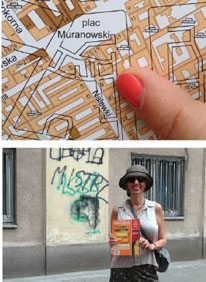
Courtesy of the author
More important to Der Moment’s founder and editor, Zwi/Tsvi Hirsch Prylucki was that Yiddish journalism be a vehicle for Jewish education and for spreading a Jewish renaissance. A native of St. Petersburg, Prylucki started Warsaw’s first Yiddish daily, Der Veg [“The Way”], just after the 1904 – 1905 Polish revolution removed legal obstacles to an ethnic press. Der Veg closed in January 1907 because of competition from a cheaper newspaper focused on vulgar sensationalism. Two months later Prylucki launched Unzer Lebn (Our Life) where he began his unsigned column on political events, titled “Der Moment.”
“Words were exchanged and Lerner slapped his wife. This didn’t seem to bother her at all and she blackened his face with the contents of an inkwell. No agreement was reached.”
When Prylucki’s oldest son, Noah, arrived in Warsaw in 1909 with his law degree from St. Petersburg, he urged his father to strike out on his own and create a publication free of falsifications and crudeness that he and others believed were the hallmarks of a new popular daily, Haynt [Today]. The new publication took its title from his popular column, but was never financially stable. Due to financial turmoil, it became a revisionist Zionist enterprise to support hardline Zionist Ze’ev Jabotinsky. Zwi continued as the nominal editor of Der Moment until its last issue in the fall of 1939 when the German invasion made it impossible to continue.
The story has a sad ending. Noah was shot by Nazis in 1941 and Zwi died in May 1942 in the Warsaw ghetto, after he wrote and hid his memoirs in milk cans (which, when found, migrated to Yad Vashem). But fortunately, Der Moment lives on in microfilm at YIVO in New York, and the new Moment, a legacy publication, lives on. I know Elie was proud of what Moment has become – of its importance to the Jewish community and the role it plays in providing a platform for thoughtful, in-depth conversations. In a tumultuous world, it’s an honor to publish something he helped found.
Nadine Epstein is an award-winning journalist and editor-in-chief of Moment Magazine. She is the founder of the Role Model Project, created in memory of Justice Ginsburg to help young people identify and select role models. Epstein lives in Washington, DC.
